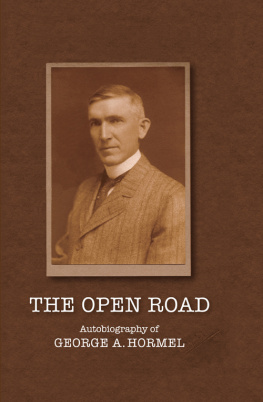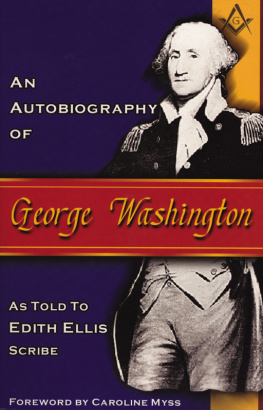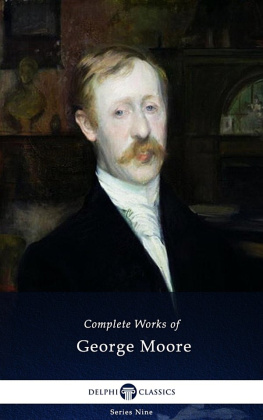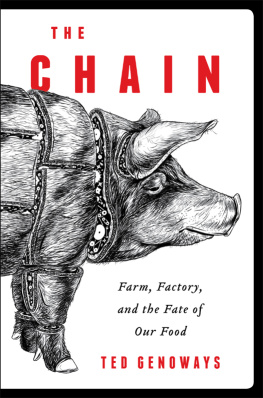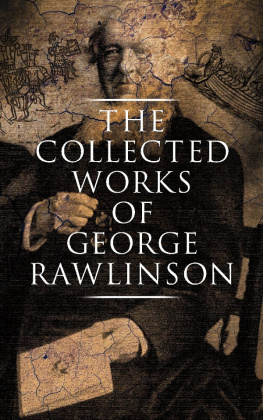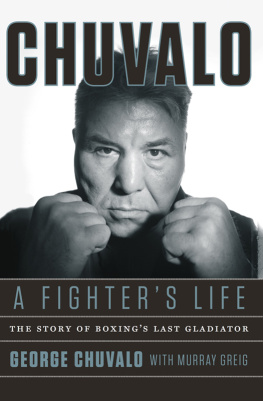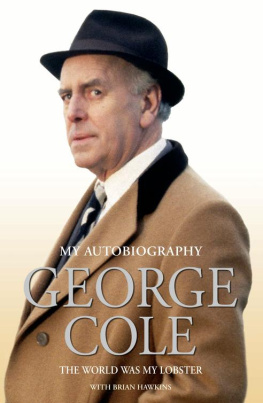THE OPEN ROAD
Autobiography of
GEORGE A. HORMEL
Copyright 2017 Thomas D. Hormel & James C. Hormel
All rights reserved. Printed in the United States of America.
No part of this publication may be reproduced, stored in a retrieval system, or transmitted in any form or by any means, electronic, mechanical, photocopying, recording, or otherwise, without the written permission of the publisher.
ISBN: 978-09976-8581-7 (Trade paper)
ISBN: 978-09976-8580-0 (Hardcover)
ISBN: 978-09976-8582-4 (Ebook)
Library of Congress Control Number: 2016945072
Hormel Historic Home
208 4th Avenue NW
Austin, Minnesota 55912
Foreword
By James C. Hormel
I n the early 1970s, during the time I was a member of the board of directors of Hormel Foods, I received a cardboard box sent to me from Jim Holton, who had recently become the companys CEO. The box contained old, typewritten pagesa manuscript I did not know existedthe unpublished autobiography written by the companys founder, my grandfather, George A. Hormel.
I read the manuscript and was fascinated. This was my grandfather, a man who was already in his seventies when I was born and with whom I had never had a substantive conversation. I was thirteen when he died and he epitomized a generation of elderly people of no particular interest to me.
But here he was, with keen insights and visionary philosophies, sharing his observations on a whole era of American historyhow we went from gaslight and buggies to television and airplanes in three generations. George A., as he was known, put into vivid context the transformation of a United States that, almost tearing itself asunder when he was a tiny boy, became recognized as the most powerful country on earth at the time of his death. The U.S. wasnt even as old as I am now (84 years) when George A. was born.
Many years later, I was delighted when my brother Thomas decided to publish our grandfathers text. My reaction was personal. I wasnt thinking about how his story might affect the world; I was thinking more in terms of how members of our family would have something wonderful on which to reflect.
My grandfather was guided by a social conscience. It took precedence in his personal philosophy, politics and reflex reactions to his surroundings, and caused him to give great consideration to the world around him and how people are affected by the actions of others.
In an industry that is often nasty, hard, brutish, and backbiting, it is this quality of George A. Hormel as a human being that made him a champion and a pioneer.
Preface
By Thomas D. Hormel
A stunning description of the tired, old horses in the tannery yard opens this book, dispelling any doubt as to the authors skill with words.
It was after my second reading of my grandfathers manuscript that I resolved to see it published. In his lifetime, George A. had witnessed great changes in the American lifestyle. His viewpoint has a unique value. His humanity and subtle wit makes this autobiography priceless.
In his 86 years, George A. saw Lincoln on his way to his second inauguration. He observed the industrial age as it effected a huge change in the way of life in the western world. He described the development of public sanitation as it began to support the needs of a fast-growing population. He put into perspective the changes that grew out of communication and transportation, as energy became converted from manpower to electric and mechanical. He lived through the horrors of two world wars. He founded what would become a major, international food corporation. I hope you will agree that his unique perspective of the world in this period of dynamic transformation should be preserved and treasured as part of our American history.
I called my brother Jim to solicit his thoughts about the editing task in preparing this manuscript for publication. We asked Sandra Weinrib Stanfield to lead the process. Sandy and I began by studying the writing styles of biographers of Benjamin Franklin, Thomas Jefferson, George Washington, the Marquis de Lafayette, and Mark Twain. In addition, Jim and I studied our grandfathers writing and speculated on the best way to edit it.
We would like to acknowledge Sandys astute assessment of what Jim and I agree was our grandfathers moral focus. Sandy understood and felt the respectful connection that George A. had to his workers and to his community. She prepared the manuscript, organized the posse and rode shotgun on all the little parts of the research that had to be done to turn this project into a published book.
George A. last worked on The Open Road in 1946, the year of his passing. We question whether he considered the manuscript complete. We all felt there was a special power in the original version, The Open Road, that should not be compromised. Although this book is based on that original manuscript, a later, edited version entitled Three Men and a Business, was bound and privately distributed in 1994 to members of the Hormel family and other interested parties. That version removed some passages that captured the social conditions of the times. We have elected to retain those passages.
We followed some other basic rules in preparing the final manuscript for this publication. Wherever we encountered differences between the two manuscripts, we would opt for The Open Road version, which seemed to more authentically display George A.s unique way of thinking things through and expressing himself. We decided that a few passages from Three Men and a Business, which contained informative aspects of the story missing from The Open Road, would be incorporated into this text. The book that follows is true to what we (my brother Jim and I) consider our grandfathers original intent in writing about his lifes work.
This is a glimpse inside the humble, caring mind of a great man with an extraordinary work ethic. His dreams and accomplishments purposefully benefitted his entire community.
Sandra Weinrib Stanfield
CHAPTER ONE
My World of Yesterday
E very rib showing in their poor, uncared-for coats, the half-starved horses tethered in my fathers tannery yard hungrily neighed and pawed the ground as I began filling their nose bags with oats.
Give them good measure, George, Father said. The Lord knows the poor scarecrows need it. He sighed as he examined the thin sides of the latest arrivals among them. Its going to cost more to get them in condition than the price they will bring.
Besides the horses, butchers carts, meat blocks, counters and other market equipment littered the yard and sheds.
What are you going to do with these things? I asked.
I dont know, Father answered. What can I do with them when people are going out of business every day, all over the country?
Even at thirteen, I knew that I had asked my troubled father a needlessly foolish question. What, indeed, could anyone do with anything at a time like this? A mysterious something called a panic had swept out of a vague place called Wall Street. I thought it must resemble a tornado, for I had heard my father say to his partner, Heyer, When the storm blows down the big trees, the little trees in their path go down too. Remember how it was in 57?
My father and his partner were evidently little trees, as were the butchers whose poor belongings now littered the tannery property of Hormel & Heyer; for at night, after supper, Father worked at his accounts, often sighing as if he were very tired and worried, and the ordinarily placid Heyer wore a troubled face as well. I knew that the company had made small loans to the butchers from whom it bought hides and tallow in return for a piece of paper called a chattel mortgage, and now the butchers, without being asked were bringing in their carts and horses and meat blocks. Out of a clear sky, it seemed people in Toledo werent buying meat anymore.

